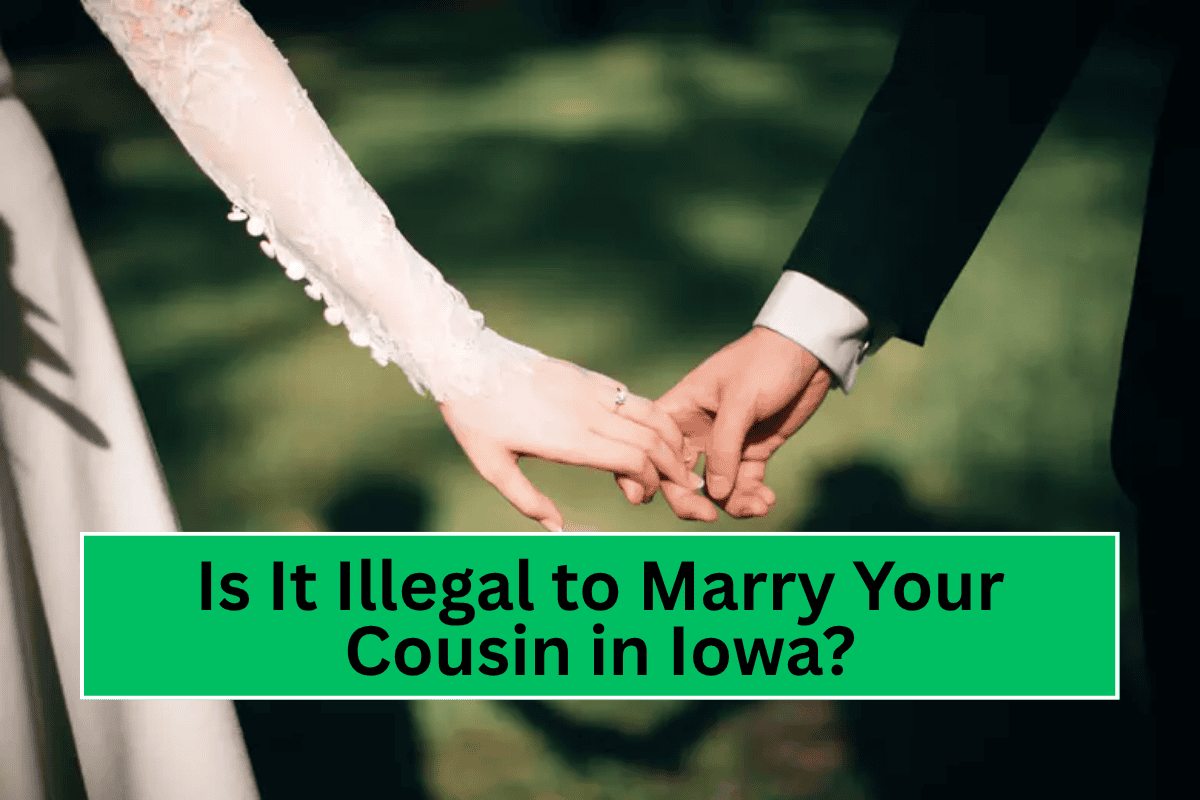Marriage laws can be confusing, especially when it comes to marrying a relative like a cousin. In Iowa, the rules are actually quite clear.
If you’re wondering whether first cousins can marry in the Hawkeye State, this article will explain everything in simple terms. From what the law says to which cousin relationships are allowed, we’ll break it all down for you.
What Does Iowa Law Say About First Cousin Marriages?
Unlike some states that use complicated terms to describe relationships, Iowa law is very straightforward. The law lists certain family members that a person cannot marry. This includes a person’s aunt, uncle, sister, brother, child, and importantly—first cousin.
So, the answer is simple: first cousins are not allowed to marry in Iowa. This ban applies to both men and women equally, with no special exceptions.
Are There Any Exceptions?
Some states allow first cousins to marry if they are past a certain age or if they cannot have children. But Iowa has no exceptions. Whether you’re young or old, healthy or not, if you’re first cousins, you cannot legally marry in the state.
When Was the Ban on First Cousin Marriage Introduced?
Iowa’s first marriage laws date back to 1840, when it was still a territory. At that time, the laws focused more on immediate family relationships like parents, siblings, and children.
The specific ban on first cousin marriages was added later. While we don’t know the exact year it was added, it is now clearly written in the state law.
What Types of Cousins Can Marry in Iowa?
Here’s the good news: only first cousins are banned from marrying in Iowa. This means that other cousin relationships are allowed. For example:
- First cousins once removed (your cousin’s child or your parent’s cousin) can marry.
- Second cousins and even more distant cousins are also allowed to marry.
So if you’re unsure whether your cousin relationship is too close, you might still be able to get legally married in Iowa.
What If You Get Married as First Cousins in Another State?
It’s unclear whether Iowa would recognize a first cousin marriage that took place in a state where it is legal. While some states honor out-of-state marriages, others do not if it violates their own laws. If you’re thinking about this, it’s a good idea to speak to a legal expert.
Do You Have to Say You’re Related on Iowa Marriage Forms?
Unlike some states, Iowa doesn’t ask on its marriage application whether the couple is related by blood. But that doesn’t mean the law allows it. If you’re first cousins and try to get married in Iowa, the marriage will not be valid under state law.
What About Neighboring States?
If you live near Iowa and are looking for a state where first cousins can marry, you might be out of luck. Neighboring states like Illinois, Minnesota, Missouri, Nebraska, and Wisconsin also do not allow first cousin marriages.
You might need to travel farther, such as to Tennessee, where such marriages are legal.
Catholic Church Rules on Cousin Marriages
The Catholic Church has its own rules. First cousins can only marry in the Church if they get special permission called a dispensation. This needs to come from a higher authority in the Church. Without it, the Church won’t perform the wedding.
For second cousins and more distant relatives, you don’t need permission from the Church. But it’s still a good idea to tell your priest before the wedding, just so there are no surprises.
In Iowa, first cousins cannot get legally married, and there are no exceptions to the rule. But if you’re more distantly related, like second cousins or first cousins once removed, you’re in the clear.
If you’re planning a church wedding, be sure to check with your priest, especially if you’re close relatives.
And if you’re unsure about your family relationship, it’s worth double-checking before moving forward. Knowing the law helps avoid surprises and keeps everything legal and respectful.












